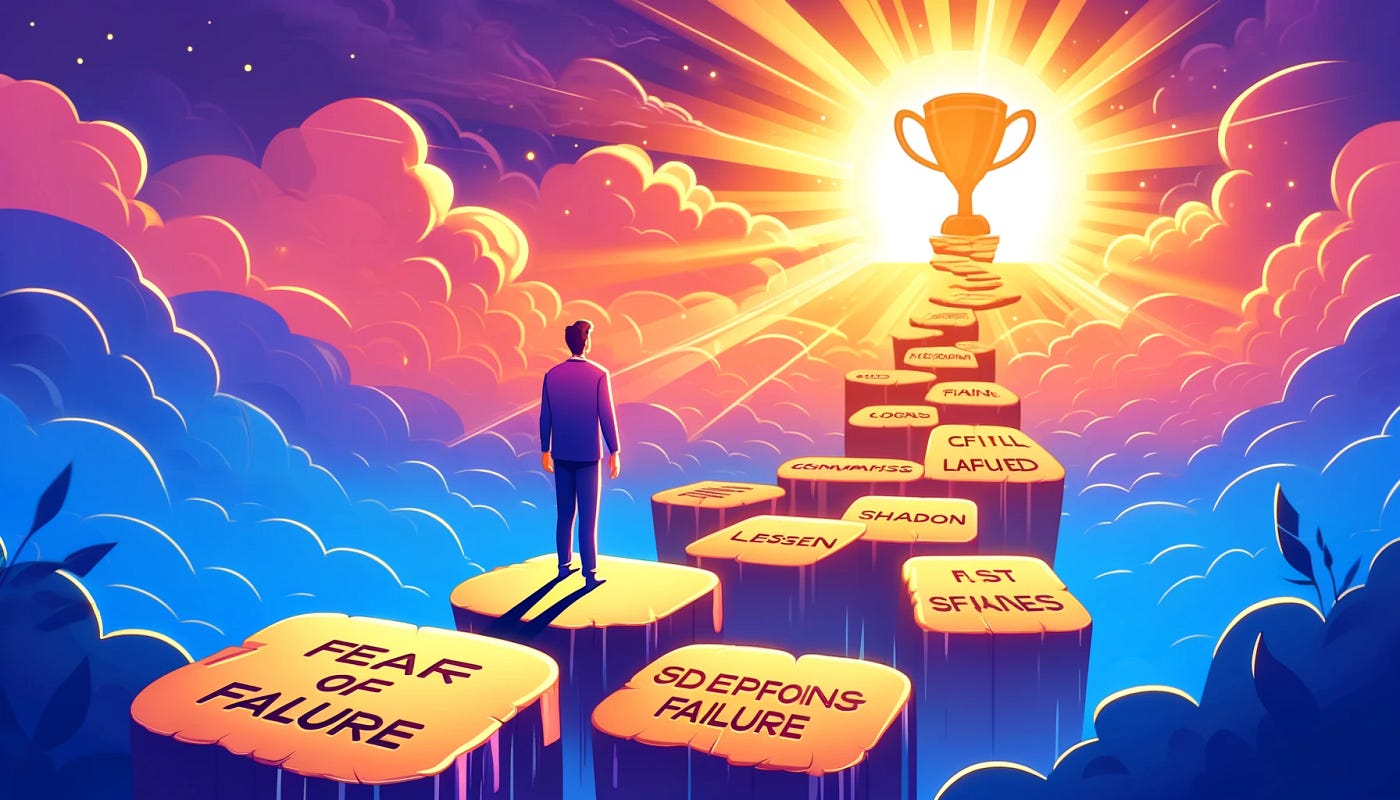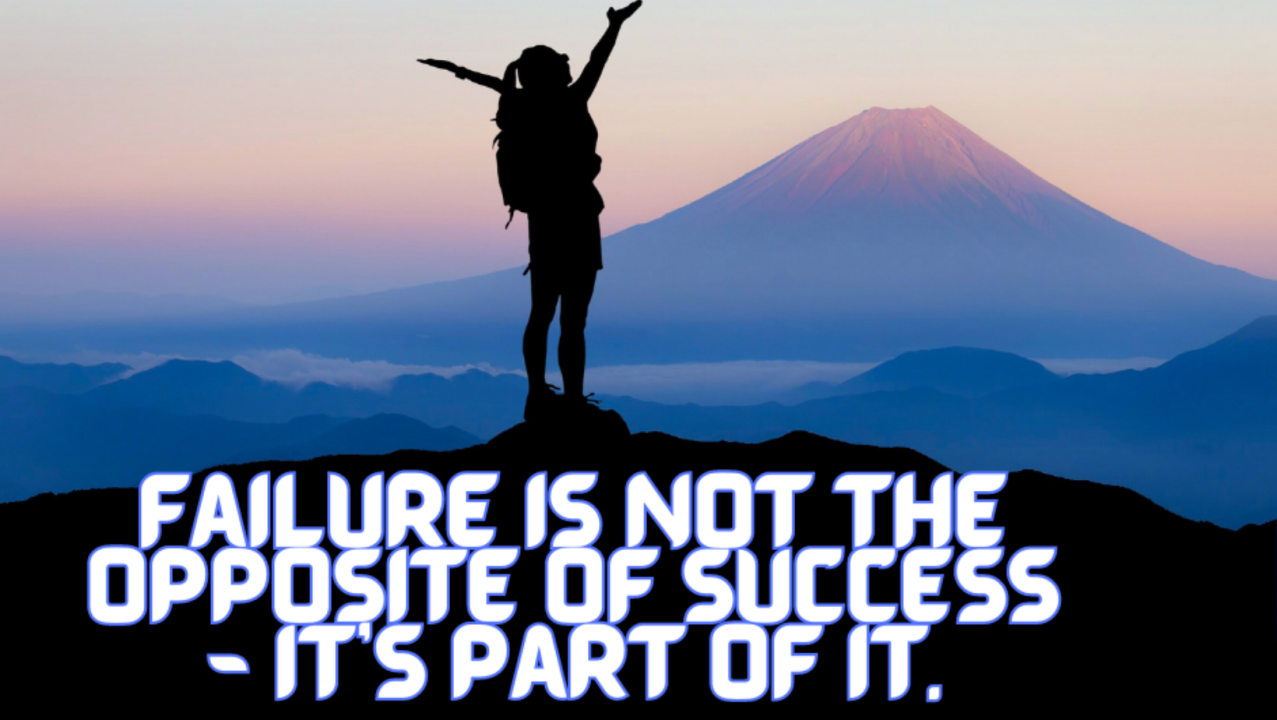Understanding the Value of Failure
Failure can be a valuable teacher, offering lessons that success often cannot. It encourages creativity, resilience, and self-awareness, pushing individuals to reassess their goals and strategies.
Failure is often seen as a setback, but history has proven time and again that it can be the foundation of incredible success. Many of the world’s most inspiring individuals faced significant obstacles, yet their determination, resilience, and innovative thinking turned their failures into stepping stones to greatness.
This article highlights five powerful stories of individuals who transformed their setbacks into success, illustrating the importance of perseverance and a growth mindset. Along the way, we’ll explore practical lessons, insightful data, and thought-provoking quotes that can motivate you to embrace failure as a catalyst for triumph.
“Failure is not the opposite of success; it’s part of success.”
1: Thomas Edison — Inventing the Light Bulb
Thomas Edison, one of history’s most prolific inventors, faced thousands of failed attempts before successfully inventing the light bulb. Edison famously stated:
“I have not failed. I’ve just found 10,000 ways that won’t work.”
Key Lessons:
- Persistence Pays Off: Success often requires repeated attempts and unwavering determination.
- Focus on the Goal: Edison’s failures didn’t deter him; they refined his approach.
Table 1: Timeline of Edison’s Light Bulb Invention
| Year | Event | Outcome |
|---|---|---|
| 1878 | Began work on the electric light bulb | Numerous experiments failed |
| 1879 | Achieved breakthrough with carbon filament | Revolutionized lighting technology |
2: J.K. Rowling — Overcoming Rejection
Before J.K. Rowling became one of the wealthiest and most beloved authors in the world, she faced rejection after rejection. Her manuscript for Harry Potter and the Philosopher’s Stone was turned down by 12 publishers. Despite financial struggles and self-doubt, she persevered.
Key Lessons:
- Believe in Your Vision: Rowling’s belief in her story kept her going despite rejections.
- Resilience is Key: Challenges are opportunities to prove your commitment.
“It is impossible to live without failing at something unless you live so cautiously that you might as well not have lived at all.” — J.K. Rowling
3: Oprah Winfrey — Rising Above Adversity
Oprah Winfrey’s journey to success is a testament to resilience. Born into poverty and facing personal hardships, she was fired early in her career as a TV news anchor. Her emotional delivery was deemed unsuitable for television news, but it was this very trait that made her an icon in daytime television.

Key Lessons:
- Turn Weaknesses into Strengths: Oprah transformed her personal, empathetic style into her unique brand.
- Redefine Setbacks: Challenges can redirect you toward your true purpose.
Table 2: Oprah’s Journey from Setback to Stardom
| Stage | Challenge | Outcome |
|---|---|---|
| Early Career | Fired as a news anchor | Developed her own talk show style |
| The Oprah Winfrey Show | Unique empathetic approach | Became a media mogul and philanthropist |
4: Walt Disney — Reimagining Creativity
Walt Disney’s career began with a string of failures. He was fired by a newspaper editor who claimed he “lacked imagination,” and his first animation studio went bankrupt. Undeterred, Disney founded The Walt Disney Company, creating beloved characters like Mickey Mouse and building an entertainment empire.
Key Lessons:
- Vision Overcomes Obstacles: Disney’s vision of storytelling and innovation guided him through failures.
- Learn from Setbacks: Each failure helped him refine his craft and business strategy.
“All the adversity I’ve had in my life, all my troubles and obstacles, have strengthened me.” — Walt Disney
5: Elon Musk — Redefining Innovation
Elon Musk, the visionary behind Tesla, SpaceX, and other ventures, faced repeated failures in both his personal and professional life. SpaceX’s first three rocket launches failed, putting the company on the brink of bankruptcy. However, the fourth launch succeeded, securing funding and contracts that propelled SpaceX to global prominence.
Key Lessons:
- Embrace Risk: Musk’s willingness to risk everything showcases the power of bold decision-making.
- Adapt and Innovate: Learn from failures to create more effective solutions.
Table 3: SpaceX Launches — Turning Failure into Success
| Launch Number | Outcome | Impact |
|---|---|---|
| 1-3 | Failed | Nearly bankrupted the company |
| 4 | Success | Secured NASA contracts and funding |
Common Themes Across the Stories:
While each story is unique, several key themes emerge:
- Resilience: All these individuals faced setbacks but refused to give up.
- Growth Mindset: They viewed failures as opportunities to learn and improve.
- Vision and Passion: A strong belief in their goals kept them motivated.
Lessons for Turning Failure into Triumph
1. Adopt a Growth Mindset: Failure isn’t an endpoint; it’s part of the journey. Adopting a growth mindset allows you to see challenges as opportunities for improvement.
“Success is stumbling from failure to failure with no loss of enthusiasm.”
2. Learn from Mistakes: Analyzing what went wrong provides valuable insights for future attempts.
Example:
Edison didn’t view his 10,000 failed experiments as wasted efforts but as necessary steps toward innovation.
3. Stay Persistent: Persistence is often the difference between those who succeed and those who don’t.
Supporting Data:
| Factor | Percentage of Successful Individuals |
|---|---|
| Persistence in the face of failure | 85% |
| Giving up after initial setbacks | 15% |
Source: Resilience and Success Study, 2021
4. Seek Support and Guidance: A strong support system of mentors, peers, or loved ones can provide encouragement during challenging times.
FAQs
Why is failure important for success?
Failure teaches valuable lessons, builds resilience, and often sparks creativity. It helps individuals refine their goals and strategies.
How can I overcome the fear of failure?
Focus on the potential for growth and view failure as a temporary setback rather than a permanent defeat.
What should I do after experiencing failure?
Analyze what went wrong, make necessary adjustments, and try again with a refined approach.
How do successful people stay motivated after failure?
They maintain a clear vision, surround themselves with supportive individuals, and focus on long-term goals.
Can failure ever be a positive thing?
Absolutely. Many successful individuals credit their failures with teaching them critical lessons and guiding them toward better opportunities.
Conclusion
Failure is not a sign of weakness or defeat—it is a steppingstone to success. The stories of Thomas Edison, J.K. Rowling, Oprah Winfrey, Walt Disney, and Elon Musk demonstrate how perseverance, adaptability, and vision can transform failure into triumph.
Embrace your failures, learn from them, and let them propel you toward your goals. Success isn’t about avoiding failure but about rising every time you fall.
“Our greatest glory is not in never falling, but in rising every time we fall.”
